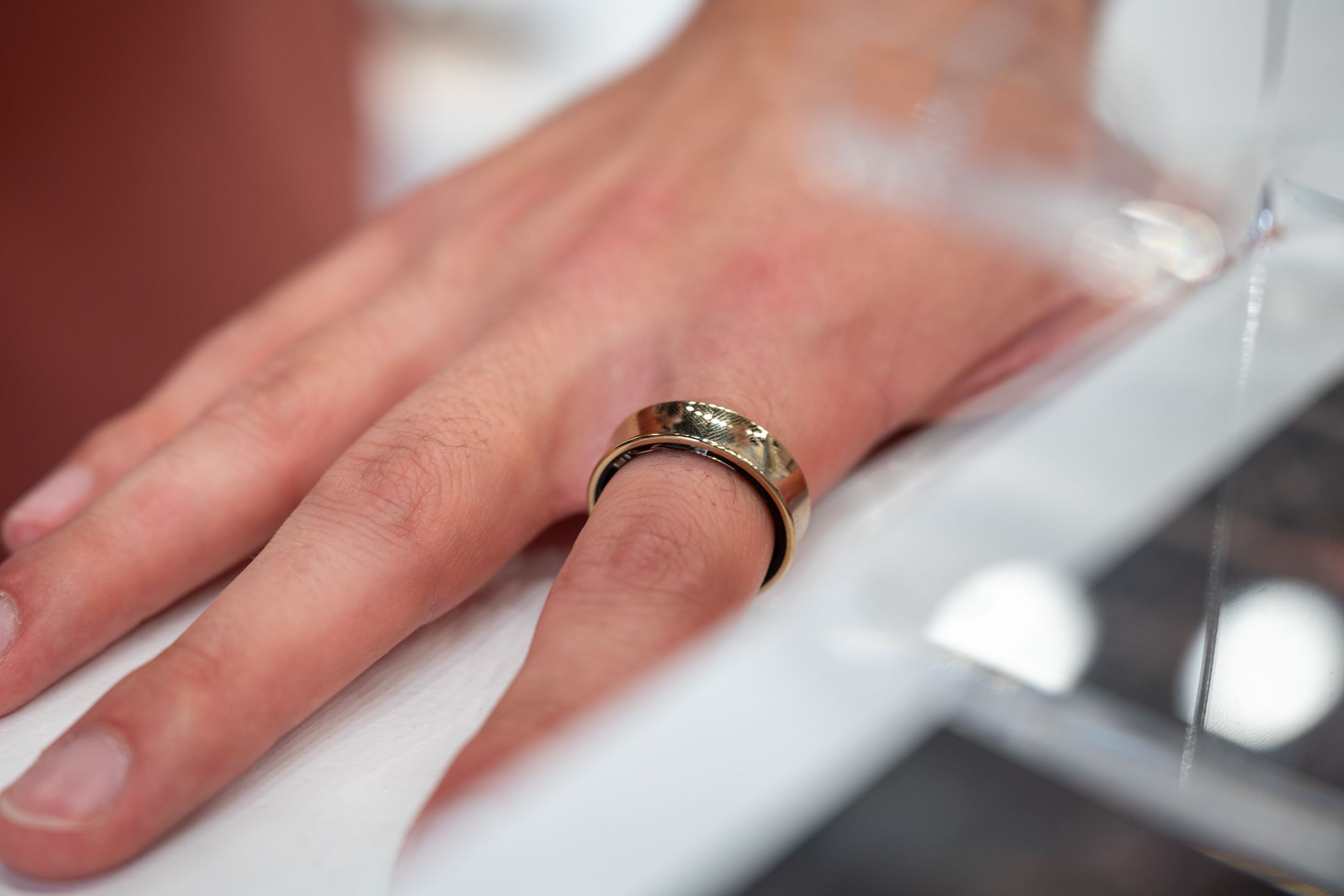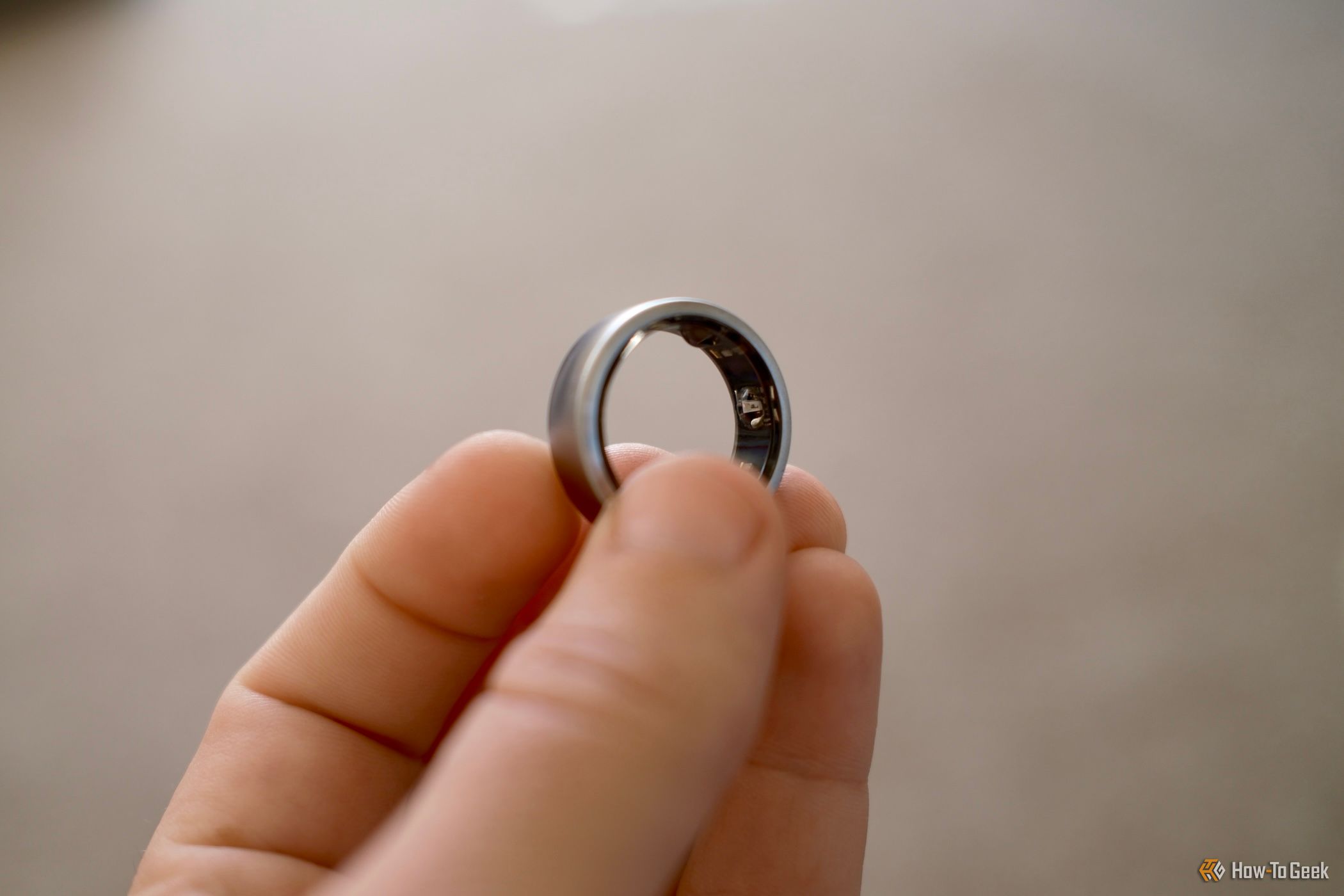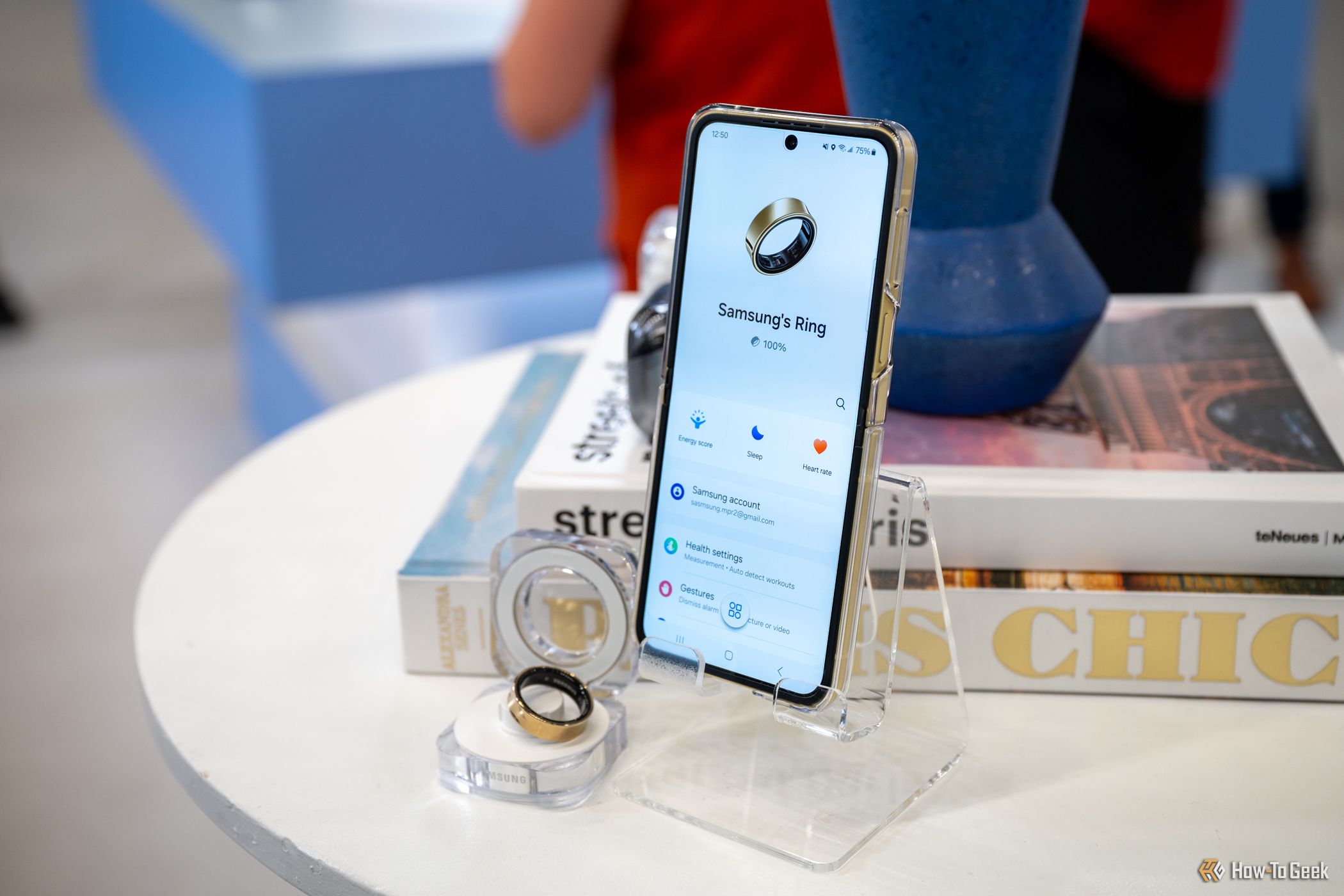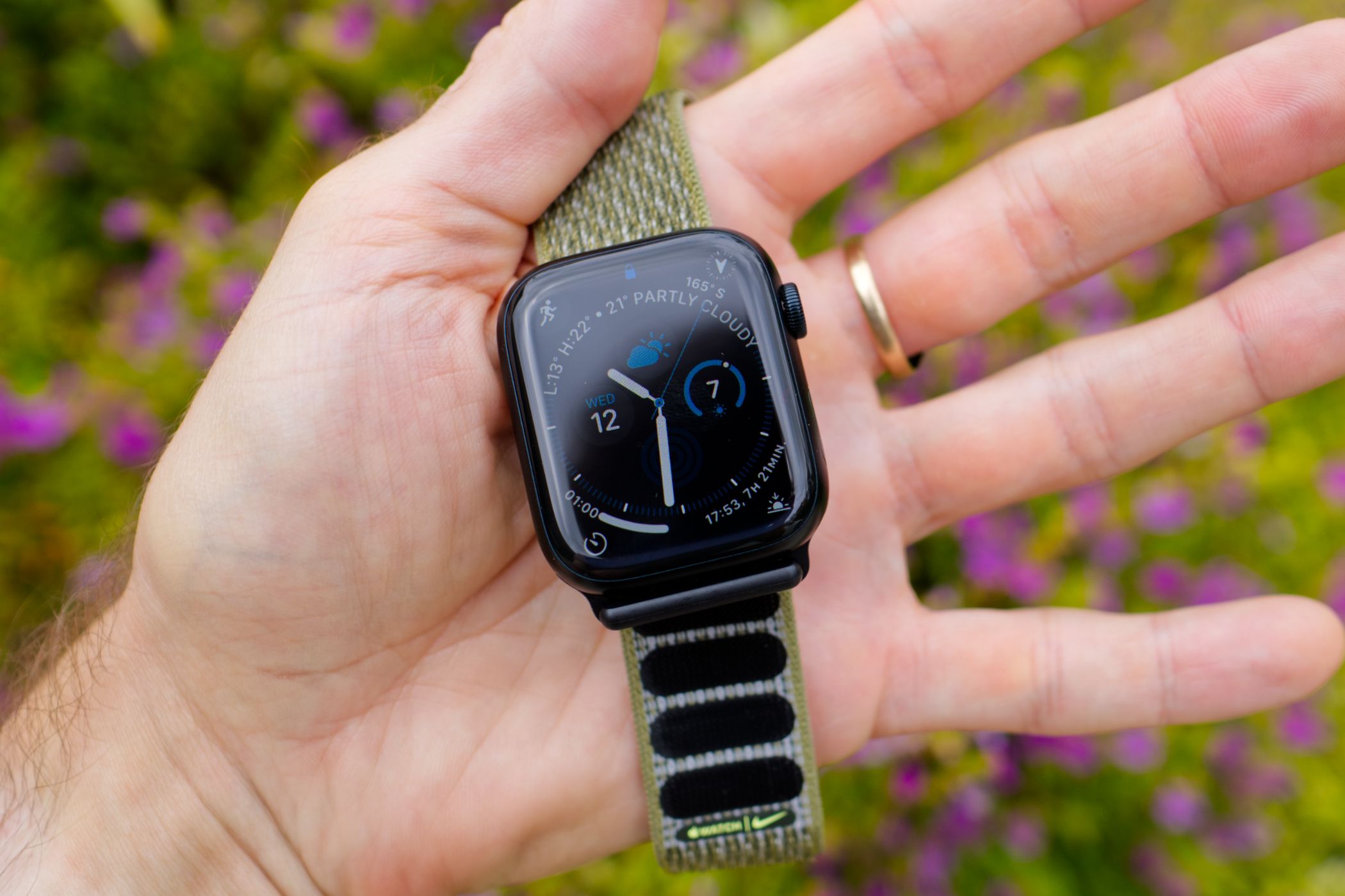I Would Wear a Galaxy Ring, But Samsung Said No
As a smart ring wearer, I was excited to see Samsung finally enter the market with a new wearable of its own. But my excitement quickly turned to disappointment when I noticed the large asterisk Samsung had placed on its latest Galaxy device.
Introducing the Samsung Galaxy Ring
Samsung’s long-awaited smart ring, the Galaxy Ring, finally launched in mid-2024 to take on the market leader, the Oura Ring which is now on its third-generation.

The new kid on the block has a fair bit going for it. Samsung is a far better-known brand than Oura, and so the company's smart ring received a lot of press attention for this reason. For many people, the first time they become aware of a tech category is when one of the big names gets into the game.
Functionality-wise, the Galax Ring is a decent offering, as noted in our brief hands-on. The sleek ring packs a lot of tech into a tiny form factor, measuring heart rate, blood oxygen, skin temperature, activity, and sleep cycles. It's available in titanium black, titanium silver, and titanium gold and comes with its own wireless charging case.
Samsung has also borrowed from Oura the idea of distilling a lot of complex data into simple metrics, offering you daily sleep and energy scores. Additionally, the Galaxy Ring has FDA clearance to alert you about sleep apnea and irregular heart rhythms which could point to a potentially dangerous heart condition known as atrial fibrillation, or Afib.
No Subscription Needed
The big news, however, is what Oura hasn’t copied from Oura—namely, the need for a subscription to gain full access to the data.
The Oura Ring gives you access to a great deal of data, even more than the Galaxy Ring. But getting full access to it comes at a price: either $5.99 per month, or $69.99 per year. That’s on top of the price of the Ring itself, which starts at $299.

The Galaxy Ring, in contrast, gives full access to all available data in the Samsung Health app without any ongoing cost. At a time when consumers are increasingly suffering from subscription fatigue, that’s a big selling point for Samsung. It also means you can gift the ring (or pass it on to someone when you're done with it) without worrying about them needing to pay for a subscription to get the most out of it.
But there’s a problem...
The Galaxy Ring Requires a Galaxy Phone
Samsung has chosen to make the Ring exclusive to Galaxy smartphone owners. To be clear, that’s not a technical issue. The Samsung Health app runs on any smartphone, including iPhone, and the Ring sends its data to the app via a perfectly standard Bluetooth connection. There's no reason the Ring couldn't work with any smartphone that satisfies these requirements.

No, this is a purely commercial decision. Samsung is hoping the Ring will be sufficiently appealing that making it exclusive to its Galaxy phones will persuade people to buy one.
That’s a Gamble With Android
For other Android phone owners, that’s a gamble. Some may not care about the brand of their phone, or be wedded to any particular features or design elements it may offer. That’s a slice of the market which may be happy to switch to Samsung the next time they upgrade. Perhaps some will even be keen enough on the Ring to upgrade ahead of schedule and buy a Galaxy phone now.
But there are Android owners who do care about their choice of phone. Many Google Pixel owners fall into this category, for example. They like getting unadulterated Android direct from Google, without any bloatware; they appreciate the clean photo processing; they like the call screening; and so on.
In trying to force people to buy Galaxy phones, Samsung is locking itself out of many potential Ring sales it might otherwise have made.
It's a Wild Bet for iPhone
However big of a gamble that may be with Android, it’s a buck-wild bet with iPhone owners. Even for the least loyal iPhone owner on the planet, Samsung is telling them they have to get used to a whole new user interface; repurchase most of their apps; and sacrifice both iMessage and FaceTime.
For most iPhone owners, it’s way more than that. Samsung is asking them to give up their entire ecosystem.
For example, you can start writing something on a Mac, continue on an iPad, and do some final tweaks on an iPhone—all without any prior setup. You can copy and paste between different Apple devices. You can download a file on your iPhone and set your iPad or Mac as the destination. You can share passwords between Apple devices, just by bringing one close to the other. You can wirelessly share files, photos, or contacts using AirDrop. You can receive text messages on your iPad and phone calls on your Mac.
I could go on, but you get the idea. There is no way that the average iPhone user is going to consider, even for a moment, switching to a Galaxy phone just to be able to buy a Galaxy Ring. Especially when Apple already produces a wearable that does much of the same in the form of the Apple Watch (though admittedly the form factor and battery life are considerably different).

So in making this decision, Samsung is robbing itself of a huge slice of the market. It's more than 70% of the US market, more than 50% in each of Canada and the UK, and more than a quarter of the market in EU countries.
It’s not just the size of the market, either. iPhone owners, on average, have higher disposable incomes, and a known propensity for buying sleek technology. Like, oh, I don’t know, a smart ring.
Samsung Won't Take Your Money
I like my Oura Ring and I think the subscription fee is justified by the combination of the data it provides and the thoughtful ways the app presents that data. But if Samsung could have offered something similar without the annual cost, it could have won my business.
As it is, I can’t give Samsung my money, and the same is true for a huge number of the smartphone-owning population. That’s not smart business, that’s just hubris.
Your changes have been saved
Email is sent
Email has already been sent
Please verify your email address.
Send confirmation emailYou’ve reached your account maximum for followed topics.
Manage Your List Follow Followed Follow with Notifications Follow UnfollowThe above is the detailed content of I Would Wear a Galaxy Ring, But Samsung Said No. For more information, please follow other related articles on the PHP Chinese website!

Hot AI Tools

Undresser.AI Undress
AI-powered app for creating realistic nude photos

AI Clothes Remover
Online AI tool for removing clothes from photos.

Undress AI Tool
Undress images for free

Clothoff.io
AI clothes remover

Video Face Swap
Swap faces in any video effortlessly with our completely free AI face swap tool!

Hot Article

Hot Tools

Notepad++7.3.1
Easy-to-use and free code editor

SublimeText3 Chinese version
Chinese version, very easy to use

Zend Studio 13.0.1
Powerful PHP integrated development environment

Dreamweaver CS6
Visual web development tools

SublimeText3 Mac version
God-level code editing software (SublimeText3)

Hot Topics
 1664
1664
 14
14
 1422
1422
 52
52
 1316
1316
 25
25
 1267
1267
 29
29
 1239
1239
 24
24
 We Don't Need Slimmer Phones, But You Might Want One Anyway
Apr 13, 2025 am 03:01 AM
We Don't Need Slimmer Phones, But You Might Want One Anyway
Apr 13, 2025 am 03:01 AM
Ultra-thin phones: Amazing design or risky? Samsung and Apple are about to release ultra-thin flagship phones Samsung Galaxy S25 Edge and Apple iPhone 17 Air are about to be released, and its ultra-thin design has sparked heated discussions. While many fans are concerned about their design compromises, ultra-thin phones still have some attractive advantages. Ultra-thin design: how much does it cost? First of all, these devices are expensive. Ultra-thin design requires custom parts and improved manufacturing processes, greatly increasing costs and ultimately passing them on to consumers. While prices may change at any time, reliable news shows that the iPhone 17 Air may be priced the same as the $899 iPhone Plus, or even likely to completely replace the latter; while the S25 Edge
 Don't Like the Latest Apple Mail Changes? Here's How to Get Rid of Them
Apr 14, 2025 am 12:54 AM
Don't Like the Latest Apple Mail Changes? Here's How to Get Rid of Them
Apr 14, 2025 am 12:54 AM
New features of Apple Mail app: Categories, Summary, and Contact Photos The Apple Mail app recently updated its iPhone, iPad and Mac versions, adding features like Gmail-like email classification, notifications and email summary, and contact photos in your inbox. But not everyone likes these new changes. Fortunately, you can disable these new features and restore to a simpler way to use them. Here's how to do it: Disable Apple Mail Classification The email classification feature is designed to sort your inboxes to make it easier to process incoming messages. This feature is suitable for any device running iOS or iPadOS 18.2 and Mac computers with macOS 15.4 installed. Categories include: Main: Mail thinks the most
 Fix the Wait Limit in iPhone Shortcuts With This Simple Trick
Apr 11, 2025 am 03:05 AM
Fix the Wait Limit in iPhone Shortcuts With This Simple Trick
Apr 11, 2025 am 03:05 AM
Apple's Shortcuts app offers a "Wait" action for short pauses, but it's unreliable for longer durations. This limitation stems from iOS's background app restrictions. A clever workaround uses custom Focus modes to achieve extended waits,
 Is the iPhone 17 released?
Apr 09, 2025 am 12:07 AM
Is the iPhone 17 released?
Apr 09, 2025 am 12:07 AM
The iPhone 17 has not been released yet and is expected to debut in the fall of 2025. 1. Performance improvement: It may be equipped with a more powerful A17 chip. 2. Camera improvement: Possibly improve pixels and sensors, and advance ProRAW and ProRes formats. 3. Design changes: It may adopt a narrower or borderless design, using new materials. 4. New features are introduced: There may be breakthroughs in health monitoring and AR.
 The Apple Watch Is 10 Years Old. Here's Why I Never Bought One
Apr 15, 2025 am 06:09 AM
The Apple Watch Is 10 Years Old. Here's Why I Never Bought One
Apr 15, 2025 am 06:09 AM
The Apple Watch: Still Not Convinced After a Decade Despite over 200 million units sold since 2015, the Apple Watch remains absent from my wrist. While its health and fitness features are impressive, they don't appeal to someone like me who doesn't
 Word on iPhone Can Turn Your Voice Notes Into Documents
Apr 22, 2025 am 03:02 AM
Word on iPhone Can Turn Your Voice Notes Into Documents
Apr 22, 2025 am 03:02 AM
Microsoft Word for iOS now transforms your voice notes into fully formatted documents using Copilot AI. This latest enhancement simplifies document creation on mobile devices. To access this feature, tap the "New" button ( ), select "U
 Smartphones Are Boring Now and It's Our Fault
Apr 23, 2025 am 03:06 AM
Smartphones Are Boring Now and It's Our Fault
Apr 23, 2025 am 03:06 AM
The golden age of smartphones has passed? Future Outlook Technology enthusiasts often complain that modern mobile phones are the same and lack of innovation. Although manufacturers are to blame, we also play an important role. Let us review the development history of smartphones and explore the causes of the current situation. The Golden Age of Smartphones In 1973, Motorola engineer Martin Cooper made historic calls with the DynaTAC 8000X on the streets of New York. This "brick" phone opened the era of wireless networks. Nearly 20 years later, IBM Simon was released, becoming the world's first smartphone, equipped with a resistive touch screen and simple applications. Today, although it is a hundred times more powerful, the core function of modern smartphones is still used as an application portal. Early innovation slows down
 The Best iPads of 2025
Apr 18, 2025 am 01:01 AM
The Best iPads of 2025
Apr 18, 2025 am 01:01 AM
Choosing the Right iPad: A Comprehensive Guide Apple's iPad lineup offers a tablet for every need, but selecting the perfect one can be overwhelming. This guide simplifies the process, helping you choose the ideal iPad based on your specific requirem




